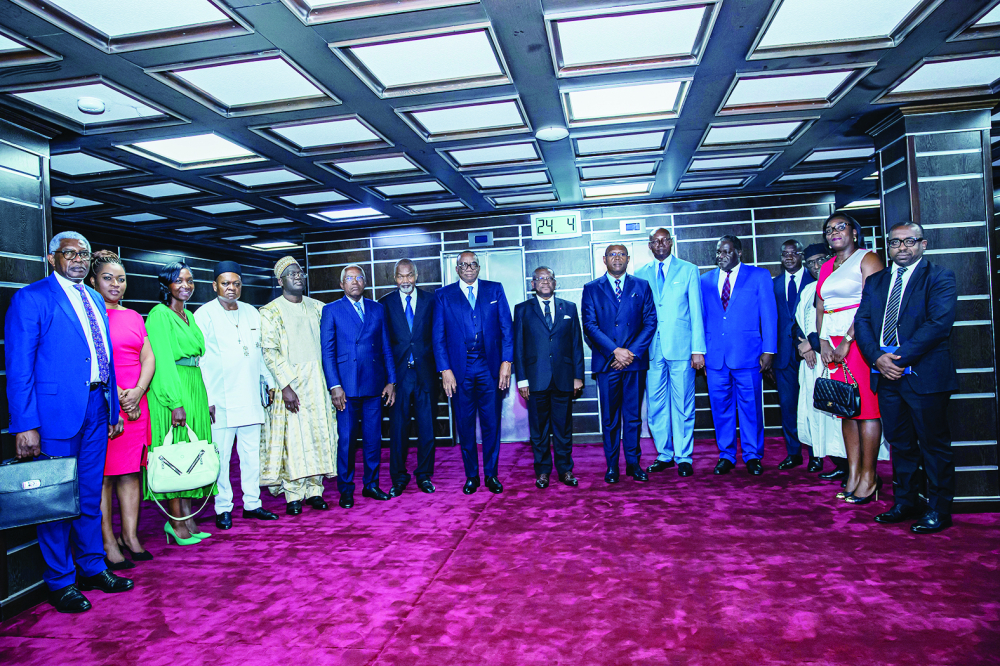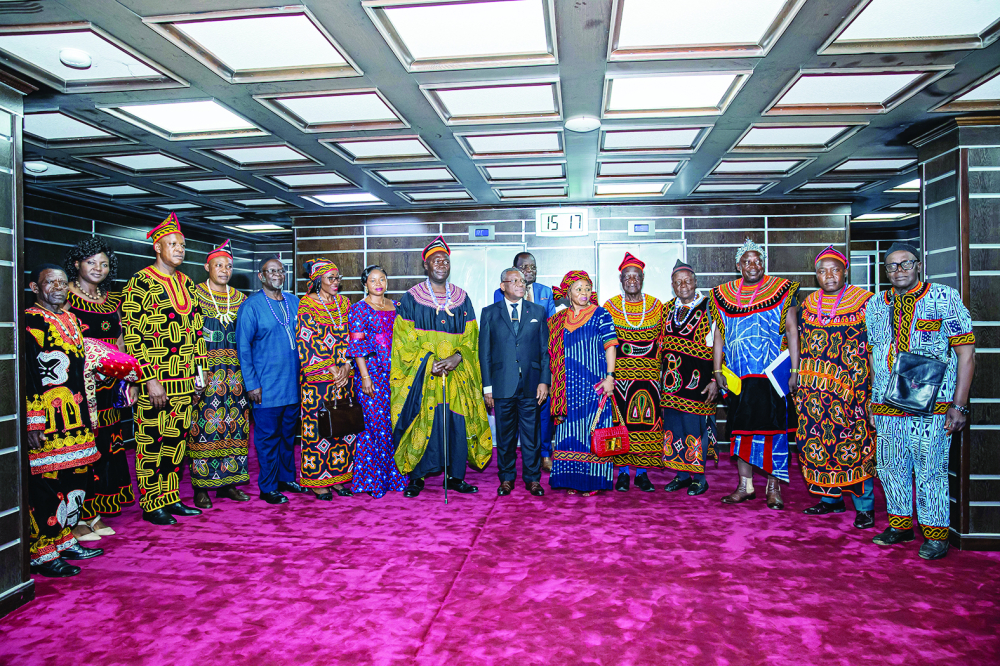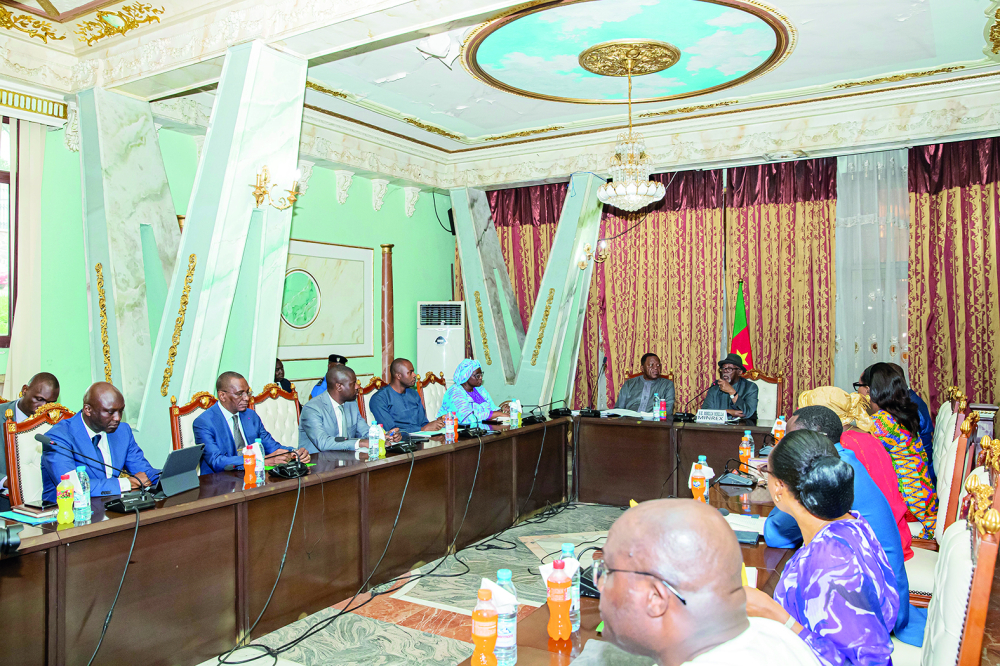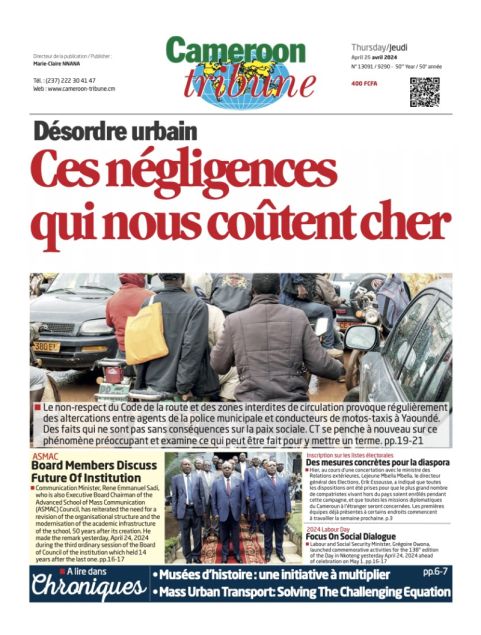Time To Make Imprints
- Par Carine Tsiele
- 27 avril 2017 10:56
- 0 Likes
The Commissioning of members of the National Commission on Bilingualism and Multiculturalism opens another era for Cameroon
The clock will as from today 27 April, 2017 start ticking faster for the 15 members of the Musonge Commission charged with the promotion of a bilingual and multicultural Cameroon. Their appointment into the Commission came on 15 March, 2017 following the text instituting the structure earlier made public on 23 January, 2017 by the Head of State sequel to unrest recorded in the two Anglophone regions of the country.
Responding to the sit-in strike action by Common Law Lawyers and Anglophone Teachers’ Trade Unions asking for a better consideration of the bilingual nature of the country, the Head of State signed a decree to lay down the Establishment, Organization and Functioning of the National Commission for the Promotion of Bilingualism and Multiculturalism, NCPBM, referred to as “the Commission.”
Although the text creating the Commission has defined its role and functioning, the quality of persons appointed into the institution equally matters a lot given that they must have to stamp their mark in order to get required results. The current uprising in the North West and South West Regions that cropped out of the grievances by lawyers and teachers has gradually developed into movements which put to question the values of nation-building in Cameroon. Conscious of the need to construct a strong, harmonious and cohesive country, President Paul Biya put in place the NCPBM. In announcing his decision to create the Commission, he pointed out on 31 December, 2016 during his State of the Nation address that it was important for sons and daughters of Cameroon to learn to work together, paying little attention to divisive issues given the intricacies involved. The Head of State also recalled that although our nation has gone a long way, the sense of collective belonging must be a continuous concern with careful steps taken to enhance our cultural identity which has been the object of admiration for decades now.
With members of the NCPBM drawn from diverse backgrounds including the civil society, political elite, the religious, and youth groups, the hope is that they will have to put their rich experiences into play so as to provide a viable alternative to various malpractices witnessed over the years regarding the national sense of belonging. It will certainly not be an easy task to achieve, given that old habits die hard and the ethnic diversity, linguistic pluralism and the cultural medley enjoyed by the population could easily go sour if poorly managed.
Certain State officials have often forgotten that they hold public offices and are accountable to the nation. The results at times are woeful neglect, disdain, and even a dangerous return to ethnic origins which undermine national interests. Even issues related to the Constitutional provisions are easily co...
Cet article complet est réservé aux abonnés
Déjà abonné ? Identifiez-vous >
Accédez en illimité à Cameroon Tribune Digital à partir de 26250 FCFA
Je M'abonne1 minute suffit pour vous abonner à Cameroon Tribune Digital !
- Votre numéro spécial cameroon-tribune en version numérique
- Des encarts
- Des appels d'offres exclusives
- D'avant-première (accès 24h avant la publication)
- Des éditions consultables sur tous supports (smartphone, tablettes, PC)














Commentaires